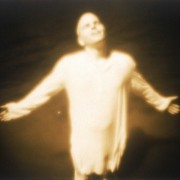 Photo: Getty Images
Photo: Getty Images
Reading the Sunday newspapers is a great way to round out the past week and see what may be coming in the week ahead. A recent Sunday New York Times had an article about health that offered an underlying question about the relationship between health and faith. The story was about an area in East Texas that has changed its moniker from the Bible Belt to the Stroke Belt – at least by health care providers.
Anderson County in East Texas is known for its friendly people and old Southern cooking. It’s also known for its high rate of strokes and heart failure and for the fact that people die earlier down there; especially black people. All you can eat diners are everywhere, and they are often full. These restaurants are the norm, filled with the kind of home cooking that people there love. Fried fish, fried burgers, French fries, fried dough and pretty much every other food you can think of – all fried.
As is the norm, the poor and minorities are affected by ill health the most. Even for those with insurance, there’s a distrust that goes way back. Black people have an inherent distrust of the medical community down there (some of it undeniably warranted) and follow ups are rarely made, according to doctors. Some people know they’re not well and would rather stay in denial than get a catastrophic diagnosis. Chain-smoking and all-you-can-eat restaurants are killing the people of Anderson County at a rate far higher that other areas around the state.
This isn’t all surprising--we know the United States is in big trouble when it comes to health. But what was striking--the most striking, perhaps--was what doctors realize is a common feeling among the people of that county and put simply by one man in failing health due to his lifestyle: “When the good Lord says, ‘It’s time for you to go,’ it’s time for you to go,” Jerry Walding said. “It ain’t up to me or to nobody else.”
Walding is 47 and lost his 45-year-old his brother to heart disease. His mother died of the same disease when she was 65 and his dad died of a stroke at 72. Walding seems to think it’s a sort of grand plan that he has no control over. Reading his opinions on health, one might admire his deep faith in Christianity. But Walding also avoids personal responsibility.
He is not alone. Doctors see this kind of "fatalism" all the time. Rather than taking control of their actions, people prefer to live to excess and leave it all to fate. But is this a religious fate? Or is this how many kinds of addicts live, with copious amounts of their drug of choice, with no care as to its ultimate effect? In fact, is making a God the deciding factor in terms of the quality of their lives, and indeed the length of them, acceptable in any religion?
Several other religious factions feel the same way, although many go much further, allowing no medical care or intervention of any kind. Case in point, the story of 11-year-old Madeline Neumann who died of type 1 diabetes when her parents chose prayer over care. But these cases are far less common than people who simply hand over their health to a higher power, despite warning signs like high blood pressure, history of heart attacks/strokes, obesity and type 2 diabetes.
This curious fatalism falls short of many religious teachings about a higher power helping those that help themselves, about honoring their bodies that house their souls and taking care of the bodies they believe that God created. So it begs the question as to the role of faith and health care. Their coupling goes a long way back. Faith healers (or shamanism) is considered to be the real “oldest profession” and remains strong to this day. Religious groups like Mormons and Rastafarians shun certain foods and additives (like caffeine) and others adopt a vegetarian diet for both mental and physical health.
Religion is something that billions of people hold close to their hearts. But doctors want their patients to know that God (or whatever Deity (s) one believes in) is not an autocrat in terms of our health. They want their patients to hold themselves accountable for what they consume and how they live. Over-eating, drinking, or drugging is not the will of any Deity, they say. These are decisions made by humans. And while respect can be given to the billions that subscribe to some sort of faith, in many ways, humans are the real masters of their own health. Many conditions are unavoidable, but when smoking and over-eating overtakes a person’s life, doctors would prefer their patients first look in the mirror, and then perhaps, toward the sky.
Read more on this story here: http://www.nytimes.com/2011/01/14/us/14ttexpectancy.html?_r=1&ref=health
Tell Us
What part (if any) does faith play in your health? What do you think of this kind of religious “fatalism” that doctors see in many Americans?


Add a CommentComments
There are no comments yet. Be the first one and get the conversation started!